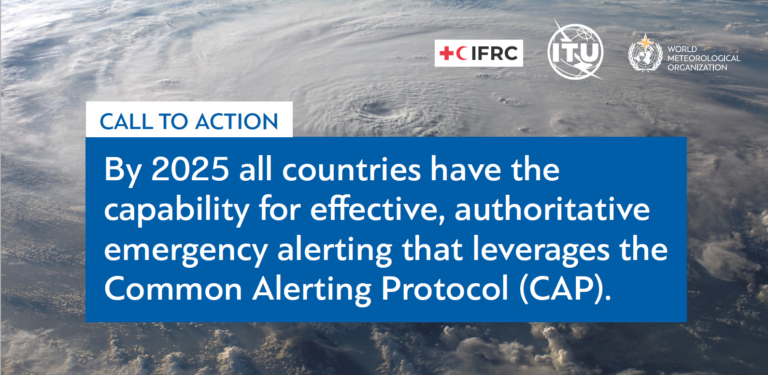The World Meteorological Organization (WMO) has joined forces with the International Federation of Red Cross and Red Crescent Societies (IFRC) and the International Telecommunications Union (ITU) to issue a call to action to improve the use of standardized emergency alerts.
The three organizations are seeking to collectively scale up their efforts to “ensure that by 2025 all countries have the capability for effective, authoritative emergency alerting that leverages the Common Alerting Protocol (CAP), suitable for all media and all hazards.”
By developing CAP emergency alerts, lives and livelihoods could be saved during disasters. According to the WMO, a CAP message communicates key facts of the emergency such as: What is it? Where is it? How soon is it? How bad is it? What should people do? CAP is applicable to all kinds of telecommunications and enhances emergency alerting so that it can be more understandable, precise, reliable, secure, and fast.
“WMO is pleased to sign this Emergency Alerting Call to Action as part of its ongoing Global Multi-hazard Alert System (GMAS) development and its collaboration with governmental, non-governmental, and commercial organizations to achieve the broadest adoption of CAP worldwide,” said WMO secretary-general professor Petteri Taalas.
According to ITU secretary-general, Houlin Zhao, information and communications technologies are critical for exchanging all-hazard emergency alerts and public warnings over different networks. CAP is part of the ITU Guidelines for developing National Emergency Telecommunications Plans.
The CAP call to action comes as, further to the development of the WMO GMAS framework, WMO also seeks to expand and improve the provision of members expert advice to the UN and other humanitarian agencies to meet rising demand for authoritative information to support early action and response.
Increasing the utilization of CAP with dissemination and aggregation through GMAS, alongside other developments, including the CHF4.7m (US$5.1m) contribution from MeteoSwiss will play a key role in ensuring WMO responding to this demand.



